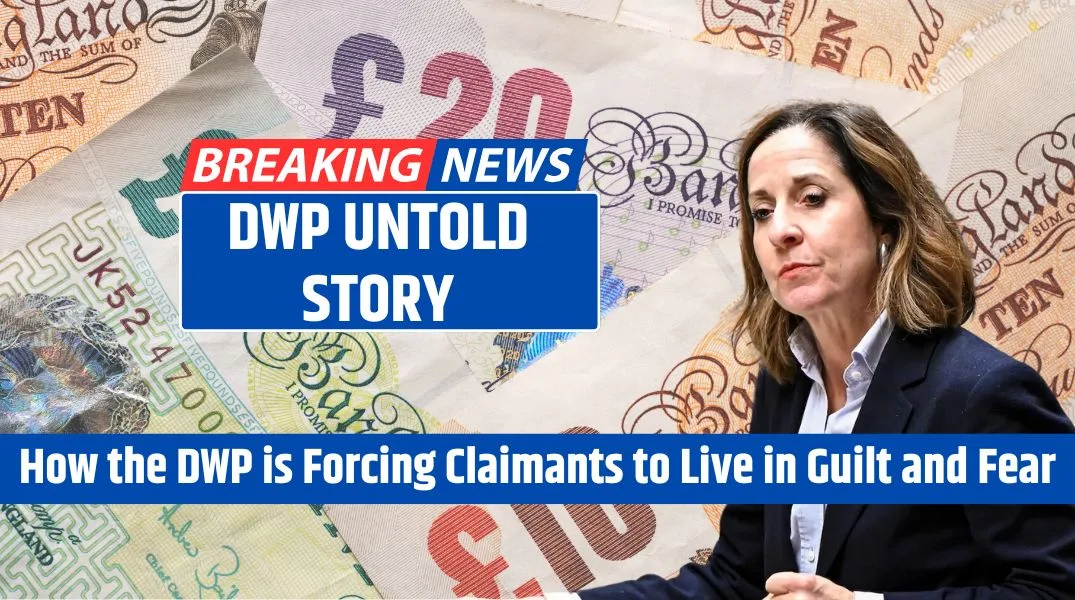DWP UNTOLD Story: In the UK today, it feels as though society has waged war on its most vulnerable citizens—those who rely on sickness benefits to survive. The voices of people who live this reality are rarely heard amidst the noise of media headlines, political spin, and public judgment. Yet their experiences reveal the deep flaws in a system that not only fails to support but actively dehumanizes the individuals it claims to protect.
A Life Defined by Judgment
Every day, people on sickness benefits are bombarded with messages that tell them they are a burden, a drain on resources, and a problem to be solved. These messages come from all directions:
- The media, which frames benefit claimants as lazy or entitled.
- Government rhetoric, which portrays claimants as fraudulent or undeserving.
- Public perception, emboldened by misinformation, leading to verbal abuse, vandalism, and outright hatred.
For those living with chronic illnesses or disabilities, this stigma compounds their already challenging existence. One woman, in her 50s, describes her experience:
“I have multiple diagnoses—complex PTSD, severe depression, osteoarthritis, lymphoedema, among others. My conditions are documented, my treatments are ongoing, and my chances of recovery are slim. Yet every day, I am made to feel like a burden, hated by society, and blamed for my circumstances.”
Her story is not unique. It’s a reflection of the collective pain experienced by millions of people who are vilified for needing support.
The Cruelty of Stigma
The stigma surrounding sickness benefits isn’t just harmful—it’s actively dangerous. It worsens mental health, deepens social isolation, and can push people toward despair and even suicide. The woman recounts how, on Christmas Day, she was struggling with suicidal thoughts only to read an article claiming that people stay on benefits because they “lack the math skills” to realize they’d be better off working.
This narrative is not only false but deeply cruel. For many, returning to work is not an option. Chronic illnesses and disabilities limit their capacity, and the additional challenges of accessing adequate healthcare and support make survival a daily battle.
The Role of Government and Media
Governments and public figures have played a key role in fostering this stigma. By using benefit claimants as scapegoats, they shift focus away from systemic issues like poverty, inequality, and underfunded public services. It’s an effective tactic for gathering public anger against a “common enemy”—a narrative reinforced through headlines, speeches, and soundbites.
But what is the cost of this propaganda? Beyond the emotional and psychological toll on individuals, there are broader societal consequences:
- Increased healthcare costs for conditions worsened by stress and neglect.
- Higher social care demands as individuals and their families struggle to cope.
- A divided society, where compassion is replaced by suspicion and hostility.
Living with Invisible Struggles
For people on sickness benefits, life is a constant uphill battle. Managing a chronic illness or disability is physically and financially exhausting. Unexpected complications often arise, making life unpredictable and even more expensive. Yet instead of empathy, these individuals are met with relentless hostility.
The woman’s story highlights the everyday indignities she faces:
- Property damage and malicious complaints made to benefit hotlines.
- Public mockery of her disabilities, further eroding her self-worth.
- Accusations of being lazy, greedy, or fraudulent, despite her documented conditions and previous contributions to society.
“I’ve worked, paid taxes, earned promotions, and gained qualifications. No one chooses this life. It’s not a way of living—it’s torture.”
Her words serve as a powerful reminder that no one wants to depend on benefits. It’s not a lifestyle choice; it’s a necessity for survival.
The Paradox of Pushing People to the Margins
The government claims it wants to help people become self-sufficient, but its actions achieve the opposite. By stigmatizing and marginalizing benefit claimants, it erodes their self-worth and pushes them further from the workforce. How can someone focus on recovery or reintegration into society when they are made to feel less than human?
Two Critical Questions for Policymakers
- How does making people more ill through stigma and blame help them become part of the workforce, whether paid or voluntary?
- Doesn’t pushing people to the fringes of society ultimately cost more in care and social needs than providing humane support upfront?
These are questions that demand honest answers, but the current approach suggests that the goal is neither rehabilitation nor reintegration. Instead, it feels as though society is encouraging the most vulnerable to disappear—whether through neglect, isolation, or death.
The Ripple Effect on Families and Communities
The impact of this systemic dehumanization doesn’t stop with the individual. Families are left to pick up the pieces, often at great personal and financial cost. Communities suffer as divisions deepen, fueled by mistrust and resentment. The ripple effect of this stigma is far-reaching and damaging, touching every aspect of society.
A Call for Change
This system cannot continue as it is. The treatment of those on sickness benefits reflects a society that has lost sight of empathy and fairness. We must challenge the narrative that frames vulnerability as weakness and support as shameful.
What Needs to Change?
- Shift the Narrative: Politicians, media, and public figures must stop scapegoating benefit claimants and instead highlight their humanity and struggles.
- Invest in Support: Provide adequate funding for healthcare, social services, and employment programs that focus on dignity and empowerment.
- Combat Misinformation: Challenge false narratives and educate the public about the realities of living with chronic illnesses and disabilities.
- Foster Inclusion: Create policies that bring people into society rather than pushing them to the margins.
The constant stigma and dehumanization faced by sickness benefit claimants are a stain on society. People like the woman in her 50s, living with multiple chronic conditions, are not burdens—they are individuals deserving of dignity, respect, and support.
By fostering empathy and addressing systemic flaws, we can create a society that values its most vulnerable members instead of vilifying them. Until then, the question remains: How long can we continue to push people to the fringes without tearing apart the fabric of our humanity?
Source: Link
FAQ’s
What is the stigma around sickness benefits in the UK?
The stigma revolves around the perception that sickness benefit claimants are lazy or undeserving, fueled by media narratives, government rhetoric, and public attitudes.
How does stigma impact people on sickness benefits?
It worsens their mental health, isolates them socially, and erodes their sense of self-worth, making it harder for them to recover or reintegrate into society.
Why are sickness benefit claimants targeted by the government?
Governments often use vulnerable groups as scapegoats to shift public focus away from systemic issues like poverty and inequality.
What can be done to reduce stigma around sickness benefits?
The narrative needs to change by challenging misinformation, investing in support systems, and promoting empathy and inclusion for vulnerable groups.
What are the societal consequences of stigmatizing benefit claimants?
It increases healthcare and social care costs, deepens social divides, and negatively affects families and communities relying on these systems.











